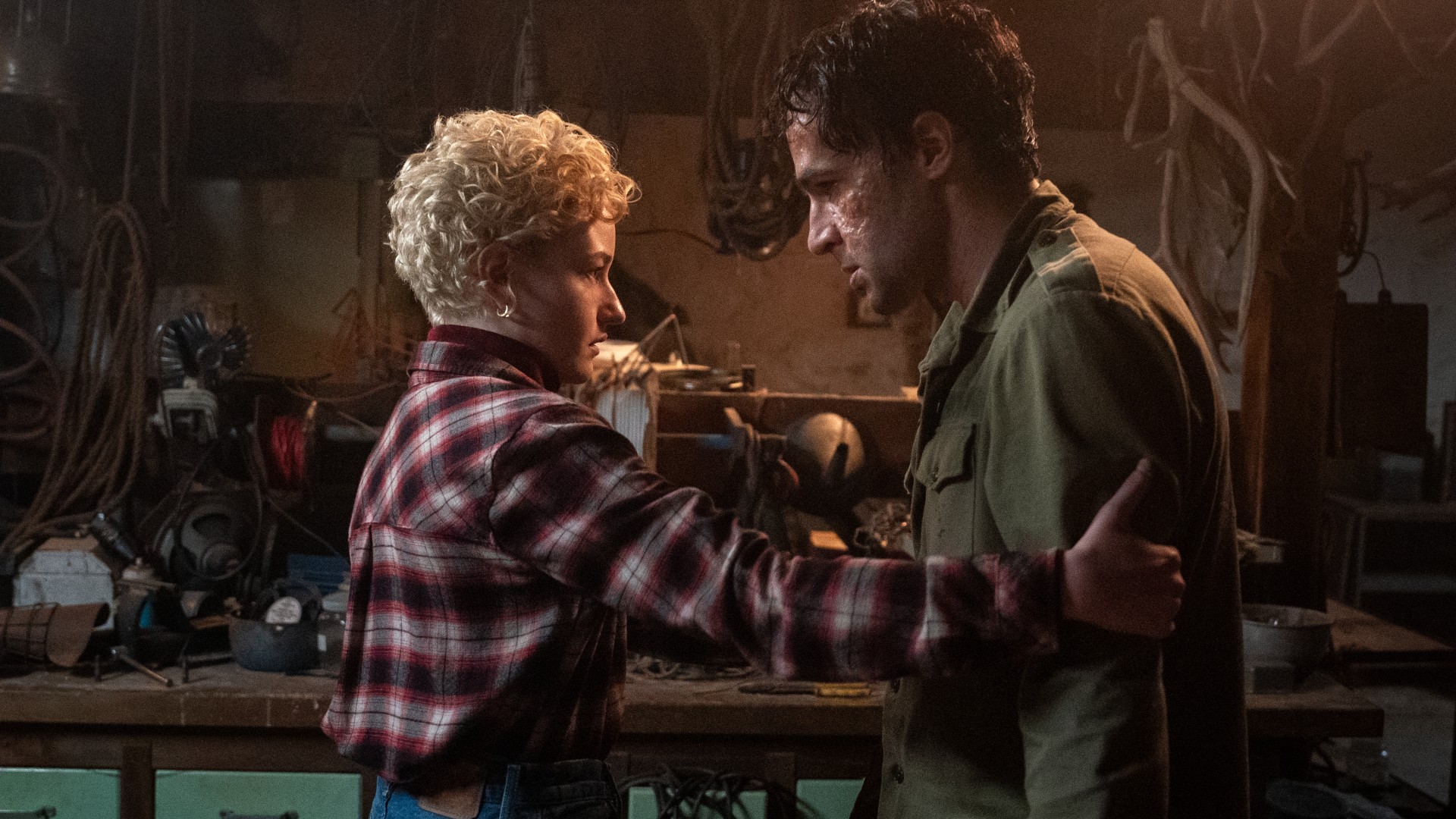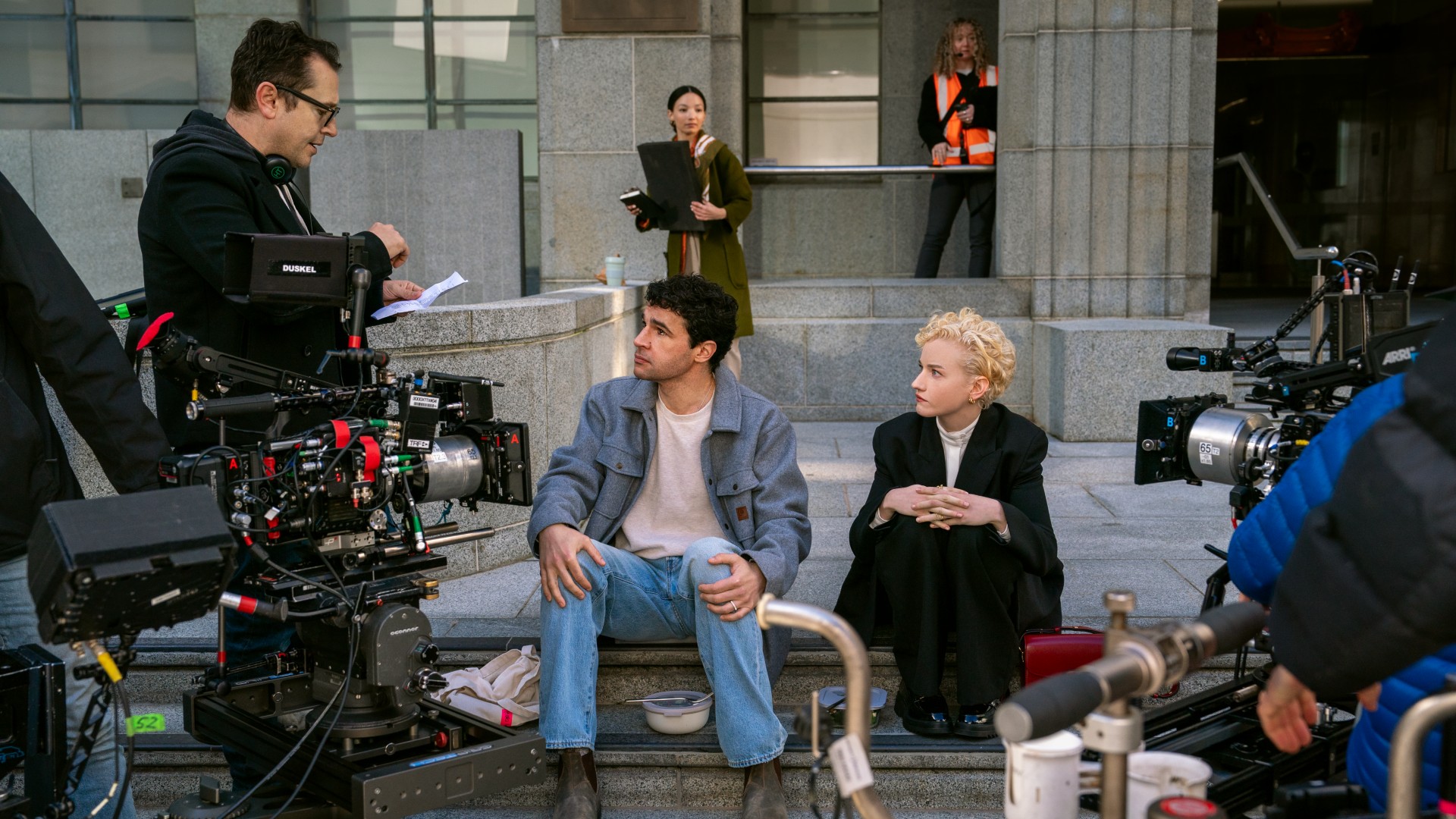
In news that won't surprise anyone who saw his 2020 take on The Invisible Man, Leigh Whannell's Wolf Man isn't really about a guy who's bitten by a beast and suddenly finds himself howling at the moon. Having co-written the new horror with his wife Corbett Tuck during the COVID-19 pandemic, the director found himself exploring themes of decay, disease, and dying marriages through the script – and that last part, in particular, had a pretty profound effect on the movie as a whole.
Starring Christopher Abbott and Julia Garner, the film sees writer-turned-stay-at-home father Blake suggest to his high-flyer wife Charlotte that they take their daughter Ginger (Matilda Firth) to Oregon for the summer, while he clears out his late father's house. Not only would the fresh air be good for them, a bunch of San Franciscans, but the quality time together might just save their strained relationship.
On the evening of their arrival, though, the trio gets attacked by an unseen creature in the woods and Blake is gravelly wounded. Terrified, they rush into Blake's family home and barricade the doors. But when Blake starts to change, they soon realize that the beast pacing outside isn't their only concern...
"We go through life thinking that we have these problems; just the daily stresses of life, whether it's bills or whatever. We can build those problems up to be more than they are," Whannell tells GamesRadar+. While he's hesitant to give too much away, he says he's "happy to hear" us suggest that Wolf Man refreshingly reverses what we've come to expect from horror movies, where the central characters are driven apart by the terrible situation they find themselves in.

"When a real problem arrives, whether it's a loved one who has a severe illness, that'll give you instant clarity about what's really important," Whannell continues. "Nothing will give you more clarity on what's important in your life than tragedy. It's happened in my own life, actually – it changes you. It doesn't always last. Human beings, we're not linear. You might get a window of clarity and then it fades away, and you go back to being the same old person complaining about this, that, or the other. I was really thinking about all that [when I wrote this] and oftentimes, when something's going really wrong, you say what you really mean. You say what you wish you had said."
Blending supernatural horror and family drama might seem a tricky task to an outsider but Whannell, whose previous works include Saw, Insidious, and Upgrade, claims it's not so difficult when you approach genre films as dramas to begin with.
"You sort of need to build it brick-by-brick, so before I start writing the actual screenplay, I'm figuring out biographies for the characters," he notes. "Who are they? And because you take the process in those steps, it allows you to build something that hopefully feels whole. I want people to watch a film of mine and feel like they're in a whole world. So when it comes to the balance of the scares and the more emotional family stuff, it's just about using yourself as a barometer.
"You can feel it if it's leaning too far in one direction," Whannell concludes. "I [still] want the film to be a dread-inducing experience; tension, suffocation. I want the film to feel like a boot on the throat of the audience."
Wolf Man releases in theaters on January 17. For more, check out our guide to the most exciting upcoming horror movies heading our way.







